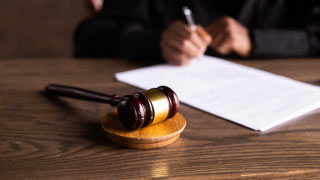Video Deposition Admissibility
July 8, 2021
Remote Proceedings
The Admissibility of Remote Video Deposition Testimony
Are ‘Zoom Depositions’ really inadmissible?
An article was recently published on Law360.com warning attorneys that ‘Zoom depositions are likely inadmissible.’ This has caused understandable concern among the thousands of attorneys who have been taking video depositions remotely for the past year and a half. The premise of the author is that if a participant in the deposition is simply hiring the ‘record’ button on the video interface, recording the entirety of the deposition (including off the record conversations) and saving the recording to their local computer then this video may not be admissible in court. Having a deposition thrown out would be a nightmare scenario for any attorney. But don't worry -- this pitfall can be avoided if you are working with an experienced remote deposition provider who has the proper protocols in place.
Lexitas has been conducting remote depositions for over 10 years. Just in the past year alone Lexitas has handled over 25,000 remote proceedings. We treat a video deposition conducted remotely with the same strict protocols we use for in-person video depositions and we adhere to all established laws and protocols as follows:
- The notice should specify that the deposition will be recorded by video as well as text.
- No one but Lexitas can record the deposition – the ability to record a remote deposition hosted by Lexitas is not available to anyone except the videographer or deposition monitor.
- A videographer or deposition monitor will control the recording, do the initial read-in script, go on and off the record, and maintain possession of the video recording after the deposition to certify it, preserve the chain of custody, and ensure that the video is part of the official record.
Are you confident all your deposition video from the past year and a half will be admissible if needed? If Lexitas handled your depositions, the answer is yes!
Ask your deposition provider these key questions to ensure your remote depositions are admissible:
1. Who has the ability to record the proceeding?
Tip – the provider should have the recording function locked down and only the videographer or deposition monitor should be able to record.
2. Who is doing the read-in script? Does it satisfy the requirements of the jurisdiction of the deposition?
Tip – this must be a certified videographer, deposition monitor, or court reporter.
3. Is the recording paused when deposition participants go off the record?
Tip – it is essential that off the record conversations are not recorded.
4. How is the video recording being stored?
Tip – your provider should always store the video deposition to a secure server and be able to prove that the video has not been modified since it was recorded.
Related Resources

Articles
Court Reporting
3 Texas Court Reporter Rules Attorneys Should Know
Rule violations could mean negligence on behalf of a court reporter or law firm that would adversely affect the case.
Read More
Articles
Court Reporting
5 Things to Expect from Your Court Reporting Firm
Here are five things to expect from your court reporting firm to have your case go smoothly.
Read More
Articles
Court Reporting
How Lexitas Data Security Ensures High Service Levels
As a fast-growing company, providing high levels of service and security are very important to us and our clients.
Read More
